General information about the health care of refugees and displaced persons
According to the Law on Health Care, the budget of the Republic of Serbia pays compensation to public and private health institutions for emergency medical interventions provided to foreigners in case they cannot collect these funds.
Health services that are not emergency interventions, and which are paid from the budget of the Republic of Serbia, are provided to asylum seekers, legally registered foreigners who have expressed their intention to apply for asylum, foreigners who have been granted asylum in the Republic of Serbia and do not have financial resources, foreigners who are suffering from infectious diseases because of which are placed under medical supervision, in accordance with the provisions regulating the protection of the population from infectious diseases, as well as those who are victims of human trafficking. Foreigners themselves bear the costs of medical services provided at their request.
Health services that are not emergency interventions, and which are paid from the budget of the Republic of Serbia, are provided to asylum seekers, legally registered foreigners who have expressed their intention to apply for asylum, foreigners who have been granted asylum in the Republic of Serbia and do not have financial resources, foreigners who are suffering from infectious diseases because of which are placed under medical supervision, in accordance with the provisions regulating the protection of the population from infectious diseases, as well as those who are victims of human trafficking. Foreigners themselves bear the costs of medical services provided at their request.
An insured person who is included in mandatory health insurance pays a monthly contribution for mandatory health insurance until s/he submits a request for termination at the RFZO branch. If a foreigner who is included in the mandatory health insurance needs to leave the Republic of Serbia, s/he should submit a request for termination of the mandatory health insurance so that s/he does not have the obligation to continue paying contributions.
Information on the phone numbers and email addresses of the Contact Center and branches/offices of the RFZO, on the procedure for issuing an insurance document after determining the status of a person in connection with mandatory health insurance, and on the amount and change in the amount of contributions based on inclusion in mandatory health insurance can be found on the website RFZO at the address https://www.rfzo.rs/index.php/kontakt-top-menu.
The contact center number of the Republic Fund for Health Insurance is 0700/333-443 (calling from all national, mobile and landline networks).
A foreigner can have mandatory health insurance with the Republic Health Insurance Fund (RFZO) if s/he has registered his residence in the Republic of Serbia and received a foreigner’s registration number issued by the Ministry of Internal Affairs of the Republic of Serbia:
- on the basis of own insurance (eg employee, entrepreneur in the Republic of Serbia, beneficiary of pensions from abroad);
- as a family member who does not have his own insurance, through an already registered person, holder of mandatory health insurance in the RFZO;
- on the basis of inclusion in compulsory health insurance of a person who (in the above-mentioned ways) cannot have his own mandatory health insurance or cannot have mandatory health insurance as a family member through a beneficiary of mandatory health insurance.
Enrollment in mandatory health insurance is carried out at the branch/office of the Health Insurance Fund in the place of residence. Persons who opt for this type of health care plan pay a contribution of 3,500 dinars per month.

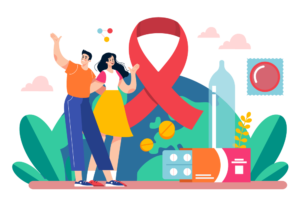
Information for people living with HIV
The life and health of people living with HIV, that is, people who have been diagnosed with HIV infection, depend on the regular use of antiretroviral therapy in the prescribed manner, because it is the only way to keep HIV infection under control. Of the 260,000 people living with HIV in Ukraine, 152,000 were taking antiretroviral therapy. If you are one of them, if you arrive in Serbia and if you need health, psychological or social HIV services, we are at your disposal to help you find your way in the health system.
If you know that you are infected with HIV, you can get all the necessary services in one of the four centers for the treatment of HIV infection that are ready to receive refugees from Ukraine – in the University Clinical Centers in Belgrade, Novi Sad, Niš and Kragujevac.
In the regional centers for the treatment of HIV infection, you will be prescribed the combination of antiretroviral drugs that you received in Ukraine, if such is available in Serbia. If the treatment you had is not given in Serbia, an infectious disease specialist in one of the regional centers for the treatment of HIV infection will examine you and decide which available new antiretroviral therapy is most suitable for you. You will receive this therapy regularly.

Information for people from the LGBTI+ population
LGBTQIA+ asylum seekers, refugees, stateless persons and internally displaced persons face a complex array of challenges and dangers during all stages of displacement, including discrimination, prejudice and violence, difficult access to humanitarian assistance, as well as potential challenges in expressing the need for protection during the asylum procedure.
Several organizations in Serbia provide services to the LGBTQIA+ community, among others Duga and Re Generacija. They provide various services such as information, community engagement within community centers, testing, psychological counseling, legal and counseling related to HIV and sexually transmitted diseases, psycho-social support for parents of LGBTQIA+ people, harm reduction from drug use at parties and festivals, etc.
More information can be found in the publication issued by the Center for Crisis Policy and Response. The publication is available in several languages, including English, Ukrainian and Russian, at https://www.crpc.rs/publikacije/.
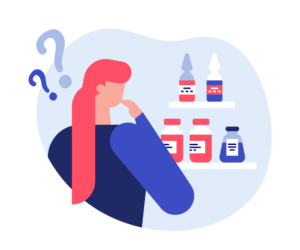
Information for people who use drugs
Unauthorized production and distribution of narcotic drugs is punishable in Serbia. Article 246 of the Criminal Code stipulates that „Whoever manufactures, processes, sells or offers for sale without authorization or who for the purpose of sale buys, holds or transfers or who mediates the sale or purchase or otherwise without authorization puts into circulation substances or preparations that have been declared to be narcotic drugs, will be punished with imprisonment from three to twelve years.“
In addition, possession of drugs for personal use is also considered to be a criminal offense in Serbia. According to Article 246a of the Criminal Code, „Whoever illegally possesses a small amount of substances or preparations declared to be narcotic drugs for personal use shall be punished by a fine or imprisonment for up to three years, and may be exempted from the punishment.“ Закон не дефинише прецизно шта је „мања количина за сопствену употребу“ The law does not precisely define what is “a small amount for your own use” or “a large amount of a substance or preparation declared to be a narcotic drug”, so even amounts of substances that seem smaller to you can be treated as if they were intended for circulation (sale).
Also, Article 247 of the Criminal Code defines facilitating the consumption of narcotic drugs, which includes inducing another to consume narcotic drugs or providing narcotic drugs for consumption or making available premises for the consumption of narcotic drugs. All of these actions are punished with prison sentences.
As long as you used drugs by injecting and were on opioid replacement therapy, in Serbia you can continue to receive methadone or buprenorphine. Opioid substitution treatment (OCT) is currently available in all types of health care facilities. OCT can be started both in inpatient healthcare facilities and with outpatient treatment, with the decision of a qualified team of doctors to start with that treatment.
If you inject drugs, contact our “Prevent” organization, which will provide you with a full range of harm reduction services, including sterile injection material, psychological support, condoms, support from a social worker, help from a specialist doctor, testing for HIV viral hepatitis C. Prevent has an office in Novi Sad and organized field work in Belgrade. If you are located in another place in Serbia, call them by phone or send an e-mail so that they can agree on how to make their services available to you.
These services are free and, very importantly, confidential. Your personal data will not be collected or shared.
If you use stimulants, some of the new psychoactive substances or any other drugs, you can get help and support of various kinds from our organizations “Prevent” and “Re Generation”. Their services are also primarily available in Belgrade and Novi Sad. For services in other locations, contact them by phone or email.
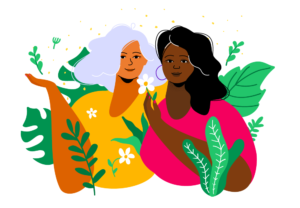
Information for sex workers
In Serbia, sex work (formally “prostitution” – providing sexual services for payment in money or other value) is a misdemeanor under the Law on Public Order and Peace. The law envisages the punishment of those who provide services, users of services and those who provide premises for the purpose of prostitution – with a fine of 50,000 to 150,000 dinars or a prison sentence of 30 to 60 days.
If you provide or use sexual services, you can contact our organizations for harm reduction programs that include the distribution of condoms, lubricants, psychological support, social worker support, specialist medical assistance, HIV and hepatitis C testing.
These services are free and, very importantly, confidential. Your personal data will not be collected or shared.
Groceries, other daily necessities and other available services
As part of the project to support refugees and displaced persons from populations at risk, an amount of funds for food, hygiene products, medicines, clothes and other necessities of life is also available. If you have an urgent need for these items, please contact one of the organizations implementing the project “Urgent Support for HIV Services and Harm Reduction among Key Populations in Ukraine and Refugees in Selected Neighborhood Countries” (you can find information about them later in this information).
War can create mental and emotional tension that can turn into traumatic stress. Organizations that support refugees and displaced persons also provide the services of psychotherapists, psychologists, social, legal and other necessary services.
Consultations via internet
Re Generation conducts peer consultation and counseling for refugees and displaced citizens of Ukraine and Russia via the Internet on harm reduction topics related to drug use, especially new psychoactive substances and stimulants, and the risks that potentially accompany their use or related patterns of behavior. They also provide referral services for voluntary, confidential counseling and testing for HIV, Hepatitis C and sexually transmitted infections, as well as consultation and referral services related to substance use disorders and other potentially necessary health, social or legal services (gender-based violence and the like).
Consultations are provided in English. If any of the potential users is not satisfied enough with their English language, it is possible to carry out consultations in their native language, with an appointment.
More information and contact details can be found on the website of Re Generacije at https://www.regeneracija.org/unodc/.
Needs assessment
Re Generacija is conducting research aimed at assessing the level of new psychoactive substances/stimulants used among Ukrainian refugees and Russian migrants, as well as to understand what the Republic of Serbia needs to do in the future so that Ukrainian refugees and Russian migrants have access to services that will improve their social and health status in humanitarian conditions.
Participation in this research is voluntary, confidential and free of charge.
The survey, more information and the consent form in English can be found at the internet address https://www.regeneracija.org/unodc/.
Application for mobile phones, with QR code
The MUR mobile application adapted by the TOC for refugee citizens of Ukraine and Russia is available to users on both the ANDROID and IOS platforms. The application is designed to facilitate users’ communication and first contact with organizations that provide services in the field, anonymously and through protected (encrypted) communication. By starting the application, the user has the option of choosing the language: Serbian, English, Ukrainian and Russian. After that, s/he chooses an organization that provides services on the territory of the Republic of Serbia and an advisor. The services that each client can receive are related to HIV prevention, support for people living with HIV, information on harm reduction topics related to drug use, especially new psychoactive substances and stimulants, referral or arranging for voluntary, confidential counseling and testing for HIV, hepatitis C and sexually transmitted infections, as well as consultation and referral services related to substance use disorders and other potentially necessary health, social or legal services (human rights, gender-based violence and the like).
Civil society organizations in Serbia that provide support

Association Prevent was founded with the aim of educating the population about the problems of drugs and sexually transmitted diseases (STDs), improving activities on the prevention of drug use and STDs, as well as promoting the improvement of youth work and volunteerism. Prevent works with vulnerable populations most at risk of HIV infection, especially young people at risk and marginalized populations. Prevent is available to refugees in the territory of Vojvodina and Belgrade.
Contact: www.prevent.co.rs
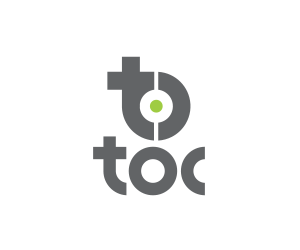
TOC – Association for the Development of Sustainable Communities has been engaged in developing policies, providing services and strengthening civil society and institutions since its foundation, contributing to decentralization and sustainable development. Through creative action and innovative approaches, TOC is focused on three program units related to the improvement of public health, the position and support of vulnerable groups and young people at risk, local economic development, creative industries and entrepreneurship, and environmental protection. Through its activities, TOC actively involves citizens in the development of sustainable communities. TOC is available to refugees on the territory of eastern and southern Serbia.
Contact: https://toc.rs/

Association Duga was founded by LGBTIQ persons with the aim of improving the lives of LGBTIQ persons, primarily in small and rural areas. Duga advocates for the improvement of the quality of life of LGBTIQ persons and their families, through the development and provision of health and social services that are not available to LGBTIQ persons or do not exist in the state system. They do this by lobbying and educating officials in public institutions. Duga is available to refugees in the territory of western Serbia and in Belgrade.
Contact: http://www.asocijacijaduga.org.rs/

Re Generacija is a specialized organization of young people and for young people that deals with policies, research and analysis of issues related to drug problems in Serbia. Since its founding, it has been advocating for different, innovative programs and views related to drug policies in Serbia, through activities such as public advocacy, public debates, filming and production of its own films and showing others, discussions, analyzes of sustainable financing of programs and harm reduction projects, writing articles. Re Generation is particularly active in harm reduction programs from the use of new psychoactive substances/stimulants in clubs and festivals. Re Generation is available to refugees in Belgrade.
Contact: www.regeneracija.org
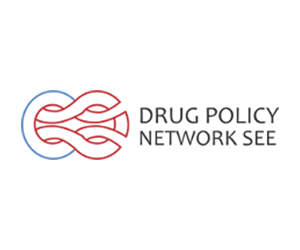
Drug Policy Network South East Europe is an initiative of 25 non-governmental organizations from all 11 countries of South East Europe. Network member organizations have preventive, therapeutic and rehabilitation services for users of psychoactive substances as their primary activity, as well as harm reduction programs. The goal of the Network is to build close and constructive ties through an open and objective dialogue with experts, key decision makers, regional bodies and international organizations in order to promote humane and effective drug policies. As part of the project, the network prepares and distributes information, connects organizations with institutions and colleagues from countries where the refugees are from, and advocates better, comprehensive support for people from populations at risk.
Contact: www.dpnsee.org
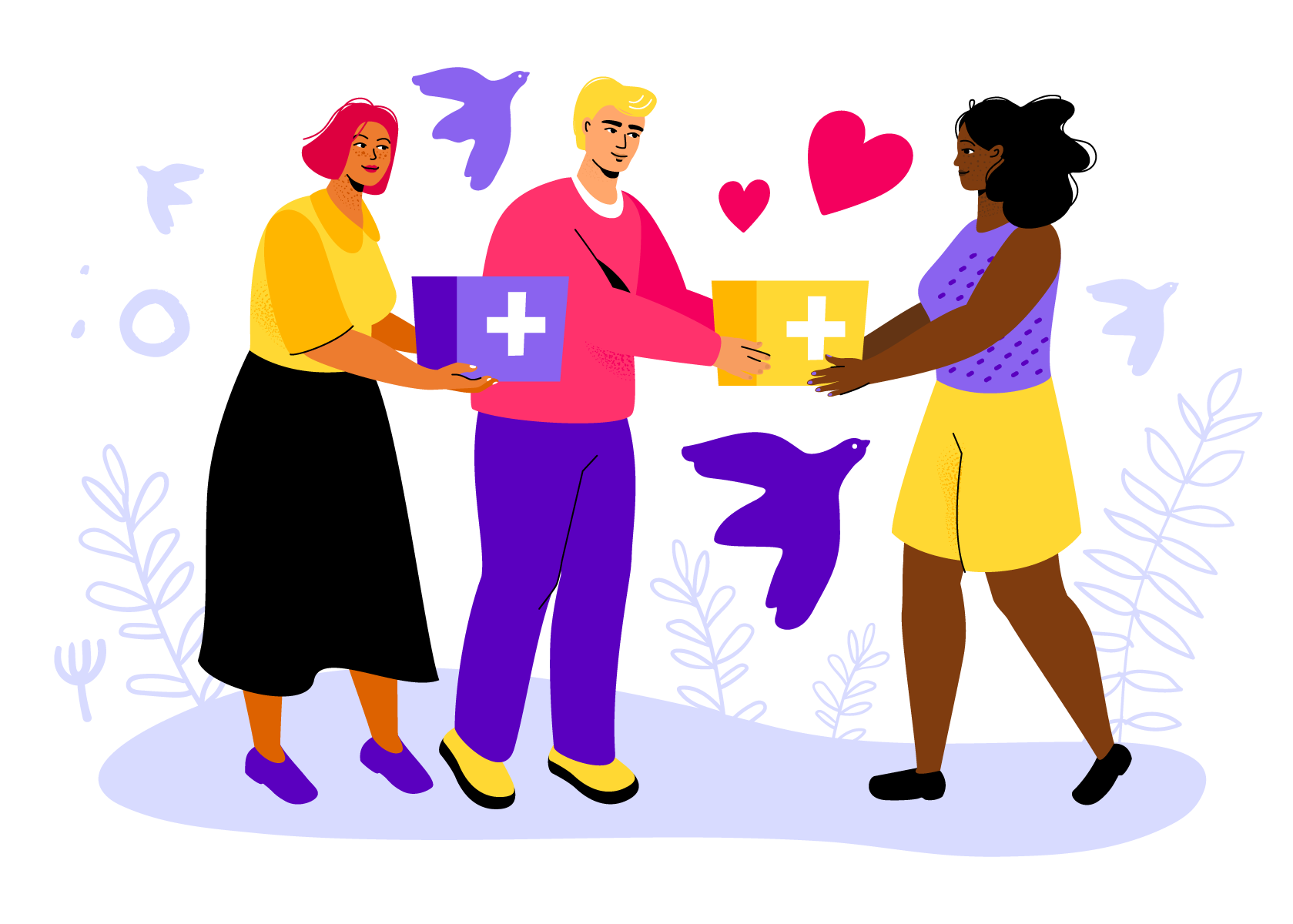
This publication was published as part of the project “Emergency support for HIV service delivery and harm reduction among key populations in Ukraine and refugees in selected neighboring countries” led by the United Nations Agency on Drugs and Crime (UNODC).
This is not a UNODC publication. UNODC is not responsible for its content nor does it necessarily endorse it. Any views expressed do not necessarily reflect those of UNODC, the United Nations or its Member States.
